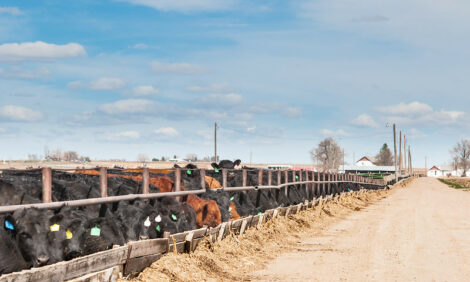



Good Breeding Reduces Greenhouse Burps
AUSTRALIA - New South Wales Department of Primary Industries (DPI) researchers are contributing to a project which aims to reduce agricultural greenhouse emissions by reducing the amount of methane belched by beef cattle.NSW DPI research scientist, Kath Donoghue, said the project team is working to identify traits which can be selected to breed low methane producing cattle.
“Cattle emit methane gas when they belch and beef cattle are responsible for about 10 per cent of the nation’s greenhouse emissions,” Dr Donoghue said.
“Methane emissions from 400 cattle have been measured to date and preliminary results indicate that genetics account for a variation in the amount of methane cattle emit.
“That means we will be able to select bulls which can be used in breeding programs to produce progeny with naturally lower methane emissions.”
Dr Donoghue said the project is also collecting information on growth, carcase and fertility traits which have a significant impact on profitability in beef herds.
“We are developing a better understanding of the relationships between methane emissions and important production traits, and the consequences of selection for low methane traits,” she said.
“This genetic research is particularly relevant to pasture-based extensive beef production systems which contribute 95 per cent of beef cattle methane emissions.
“Improvement of animals by traditional selective breeding is the most wide-reaching, permanent and simple tool to mitigate emissions from the extensive cattle sector.”
Beef cattle in feedlots make up most of the remaining five per cent – those emissions can be managed by controlling feed intake.
NSW DPI has bred a selection line of Angus cattle, with high and low methane production traits, at its Trangie and Glen Innes research stations.
These cattle are sent to the University of New England in Armidale where NSW DPI researchers use specially designed methane chambers to take precise measurements.
By the end of the project this year, records from the 500 cattle selected from the NSW DPI Angus herd will have been collected and analysed.
This project is supported by funding from the Australian Government’s Department of Agriculture, Fisheries and Forestry as part of the Climate Change Research Program and Meat & Livestock Australia.
TheCattleSite News Desk


